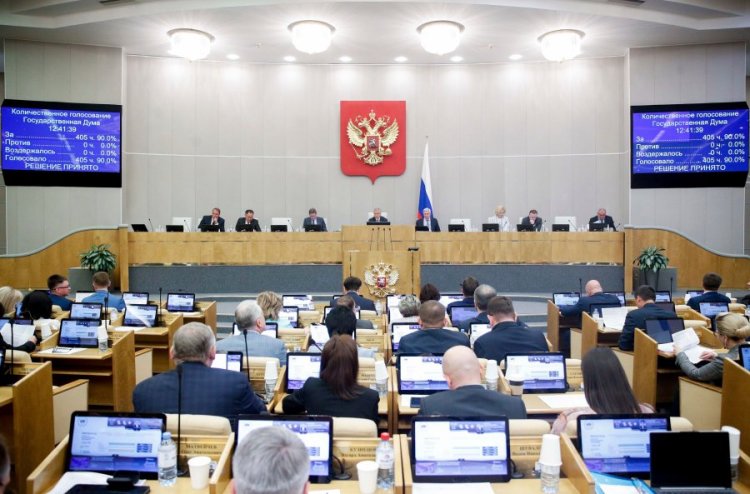Russian parliament’s upper house votes to revoke nuclear test ban treaty ratification
Russia’s upper house of parliament voted to revoke the country’s ratification of a nuclear test ban treaty on Tuesday, an idea first floated by Russian President Vladimir Putin late last month.The bill removes Russia’s ratification of the Comprehensive Nuclear Test Ban Treaty, signed in 1996 and ratified in 2000. The country’s lower house passed a similar bill last week, and it will now go to Putin to sign.Parliament leaders previously said the move is meant to keep parity with the U.S., as the U.S. signed but never ratified the treaty.State Duma speaker Vyacheslav Volodin cited Western allies’ support for Ukraine against Russian invasion as another reason to consider going back on the ban.ADVERTISEMENTAdvertisement“Washington and Brussels have unleashed a war against our country,” Volodin said early this month. “Today’s challenges require new decisions.”Deputy Foreign Minister Sergei Ryabkov said the change in policy is in response to a lack of action from the U.S. on the treaty.“We b


Russia’s upper house of parliament voted to revoke the country’s ratification of a nuclear test ban treaty on Tuesday, an idea first floated by Russian President late last month.
The bill removes Russia’s ratification of the Comprehensive Nuclear Test Ban Treaty, signed in 1996 and ratified in 2000. The country’s lower house passed a similar bill last week, and it will now go to Putin to sign.
Parliament leaders previously said the move is meant to keep parity with the U.S., as the U.S. signed but never ratified the treaty.
State Duma speaker cited Western allies’ support for Ukraine against Russian invasion as another reason to consider going back on the ban.
“Washington and Brussels have unleashed a war against our country,” Volodin said early this month. “Today’s challenges require new decisions.”
Deputy Foreign Minister Sergei Ryabkov said the change in policy is in response to a lack of action from the U.S. on the treaty.
“We believe that the 23 years that we have been waiting for something to change in Washington in terms of ratification are quite a sufficient time for this step to be made,” he said earlier this month. “Regrettably, no indications that the U.S. is going to follow this path are visible, and so we have no choice but to balance our position.”
But going back on the ban doesn’t mean that nuclear weapons tests will begin again. Ryabkov said Russia would only restart its nuclear testing program if the U.S. did first.
Defense analysts have theorized the timing of the test ban change could put pressure on the U.S. and Western allies to stop backing Ukraine.
Russian officials have repeatedly threatened escalation of conflict with the U.S. and Western allies over their support for Ukraine.
“Imagine if the offensive, which is backed by NATO, was a success and they tore off a part of our land, then we would be forced to use a nuclear weapon according to the rules of a decree from the president of Russia,” former Russian President Dmitry Medvedev said in July.
“There would simply be no other option. So our enemies should pray for our [warriors’ success]. They are making sure that a global nuclear fire is not ignited,” he added.
For the latest news, weather, sports, and streaming video, head to The Hill.
What's Your Reaction?










![[World] South Africans marvel at snow and sleet in Johannesburg during cold snap](https://www.9020blog.com/uploads/images/202307/image_650x433_64acb7c397305.jpg)


